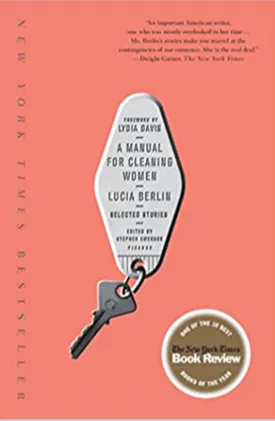Lucia Berlin
Lucia Berlin is an American writer who is best known for her acclaimed stories chronicling her life growing up in the West and her substance abuse issues. She is often described as a “poetic” writer for her remarkable ability to capture the human condition in a way that is both beautiful and, at times, brutal. Her work is largely autobiographical, inspired by her childhood, early life, and her struggles with drug and alcohol addiction.
Berlin was born in 1936 in Juneau, Alaska, and raised in El Paso, Texas. Her father worked for the Civilian Conservation Corps and her mother was an English teacher. Berlin eventually attended the University of Colorado and received a B.A. degree in English. She then attended graduate school at the State University of New York, Binghamton, on scholarship, and received her M.F.A. degree in creative writing in 1972.
Throughout her life, Berlin has struggled with extreme bouts of depression, anxiety, and addiction. Despite this, Berlin continued to write, with her work often exploring the psychologically and emotionally demanding aspects of life. In her writing, Berlin was also unafraid to look at the physical effects of her addictions: from the loneliness of sobriety to the pain of withdrawal.
Berlin’s most prominent and acclaimed work is A Manual for Cleaning Women: Selected Stories, a collection of 43 short stories which was published posthumously in 2015. It includes works written during her lifetime, some of which were published, and many others that had never seen the light of day. This collection brings together the finest and most intimate details of her life, allowing readers a unique, firsthand view into her world.
Some of her stories, such as “A Manual for Cleaning Women,” display a deep understanding of the struggles of poverty and the role that hard work can have in staving off disappointment. Other stories, such as “Angel” and “Every Angel Has the Right to Live In a House,” focus on the rocky road of rehabilitation and the power of the human spirit. Despite the desperate situations that some of her characters find themselves in, there is always a glimmer of hope.
Berlin’s powerful, sympathetic, and authentic writing style has found her an audience both during her lifetime and after her death in 2004. Her work has been praised by writers such as George Saunders, and she has been the subject of many articles and interviews. Berlin was the recipient of numerous prestigious awards, including the American Academy of Arts and Letters Award for Distinguished Writing, the Guggenheim Fellowship, and the Pushcart Prize.
Lucia Berlin’s work is an invaluable contribution to American literature, and to the study of addiction, poverty, and the lives of women in the West. Berlin’s gritty, honest, and often darkly humorous writing was made to be read, and will likely remain appreciated for generations to come.

